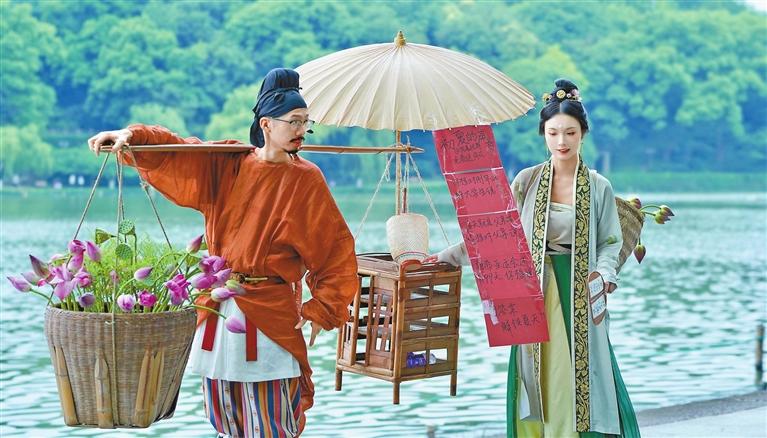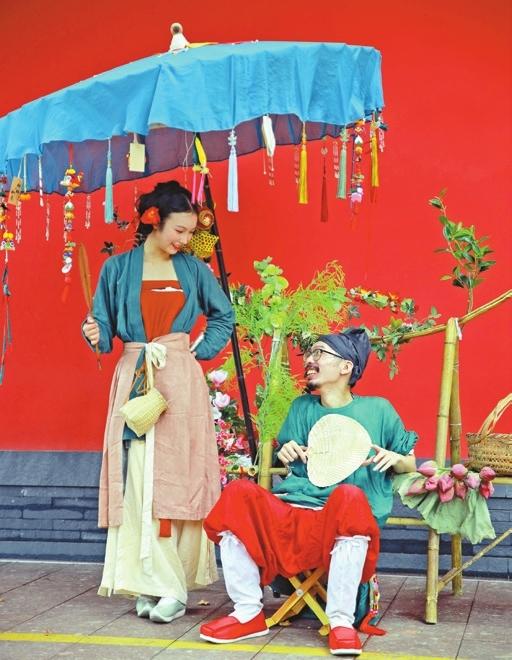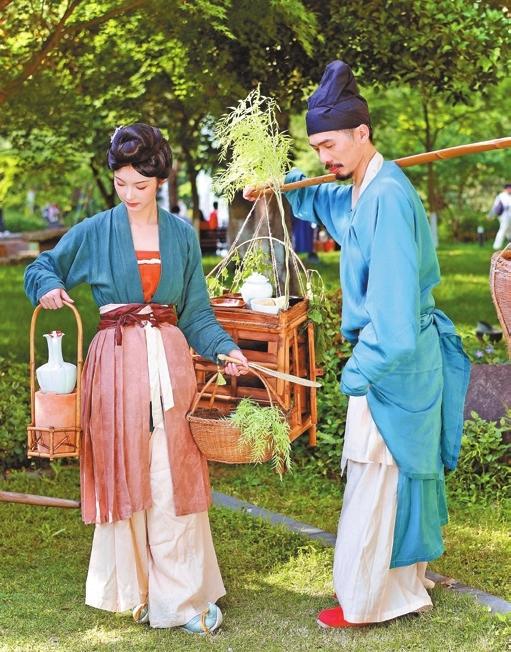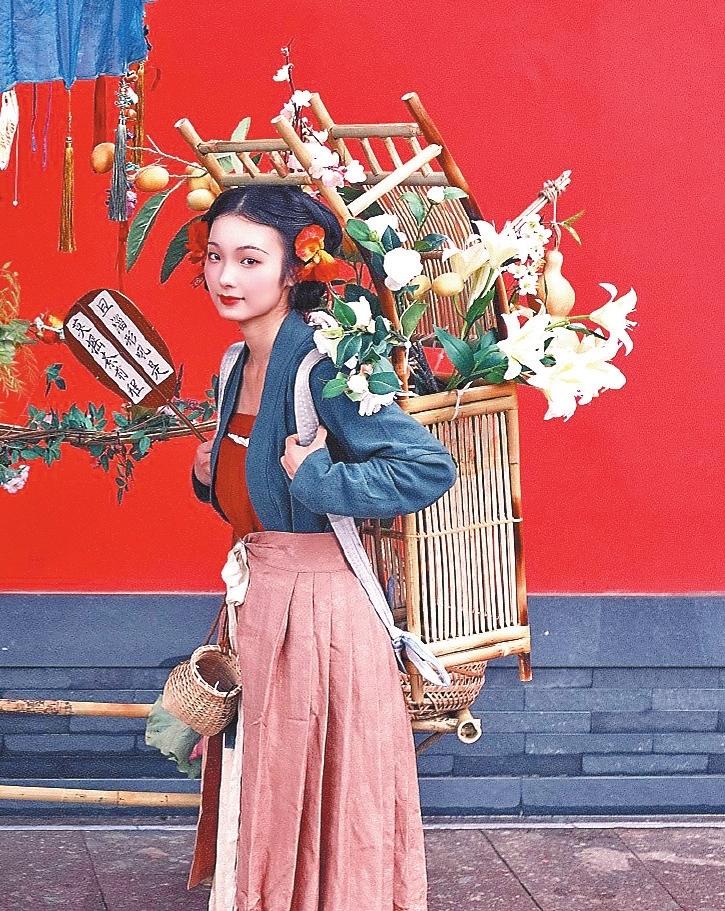



A NEW enchanting attraction has emerged along the banks of West Lake in Hangzhou, Zhejiang Province. There, a man and a woman dressed in exquisite traditional garments, seemingly transported from ancient China, graciously offer flowers free of charge, presenting a captivating glimpse into the past. The man, clad in attire reminiscent of the Tang Dynasty (618-907), carries a bamboo pole adorned with a basket teeming with budding lotus flowers. The woman, adorned in the elegant attire of the Song Dynasty (960-1279), holds a delicate bamboo fan, gracefully wafting it to and fro. Videos and photos featuring the pair swiftly gained traction on social media, garnering effusive praise from viewers, who found their attire captivating. The “Song Dynasty” maiden is Chen Xiyue, a 22-year-old vlogger specializing in content featuring hanfu (traditional attire of the Han ethnic group). She humbly responded on her Sina Weibo account, stating, “It’s not I who has gained popularity, but rather the timeless allure of traditional Chinese culture itself.” She was inspired by the flower peddlers of the Song Dynasty and wanted to interact with passersby, by distributing lotus flowers, and bestowing blessings of good fortune. Inviting her friend, Yiqing, who she thought embodies the same essence as the ancient peddler in her imagination, Chen conceived a way of exchanging lotus flowers for answers, and she prepared three questions for passersby, including asking what they would say to graduate students embarking on the next stage of life’s journey. “I have received an abundance of blessings, ranging from those meant for families, graduates, to Hangzhou itself. They are all genuine and deeply moving,” she recalls. She remembers that, several times, she asked children to recite ancient poems in exchange for lotus flowers, and when some children struggled, she invited their parents to recite alongside them. “At that moment, I felt the essence of cultural inheritance — the oral tradition deeply ingrained within the Chinese people, passed down through generations. It is through this process that many remarkable traditional cultural practices have been preserved and transmitted,” she says. Born in Jurong, Jiangsu Province, Chen says she was inspired by the animated movie series, “The Legend of Qin,” which she saw as a child. This ignited an interest and a strong desire to create artworks rooted in history and traditional culture. In 2018, Chen moved to Hangzhou where she enrolled in the China Academy of Art, majoring in the conservation and restoration of cultural relics. During her undergraduate studies, she learned how to restore porcelain and acquired a wealth of knowledge about Buddhism. For her graduation project, Chen chose to make a video themed on the evolution of hanfu worn by women during the Song Dynasty, which took her six months and an investment of 100,000 yuan (US$13,870) to produce. In the video, Chen showcases approximately 20 meticulously replicated outfits, sourced from ancient books, paintings and murals of the Song Dynasty. In addition to the garments, she also produced the makeup, hairstyles and accessories, all meticulously crafted based on historical references and materials. Chen and her friends have been making videos to re-create the daily life of people in ancient China, taking inspiration from the classic long-scroll painting, “Along the River During the Qingming Festival.” They have also brought back the ambiance of a Song Dynasty “milk tea shop,” drawing references from ancient paintings. She thinks that approaching traditional culture requires a careful and serious mindset, coupled with a deep sense of reverence. “We should not treat traditional culture as a mere gimmick, or a tool to generate attention. Instead, we should seek to understand the allure of traditional culture from the inside out, appreciating both its inner and outer beauty,” she says. Chen’s friend Yiqing, 27, is a tailor specializing in hanfu. He moved to Hangzhou in 2012 to learn makeup. However, his involvement in the field of antiques sparked a deep interest in traditional culture. Drawing upon his childhood experience of studying fine arts, Yiqing discovered a passion for creating hanfu and embarked on a career as a tailor. In 2018, he established his own studio, specializing in custom-made hanfu. Each order is meticulously crafted by Yiqing himself. Every garment he makes has an original counterpart that existed in history, whether it is depicted in a mural or a relic. The clothing is faithfully re-created based on the individual’s specific measurements. (China Daily) | 
